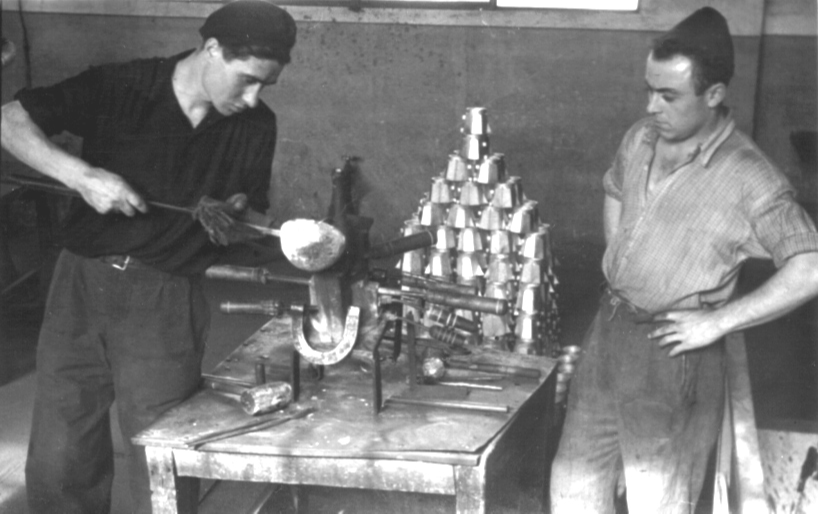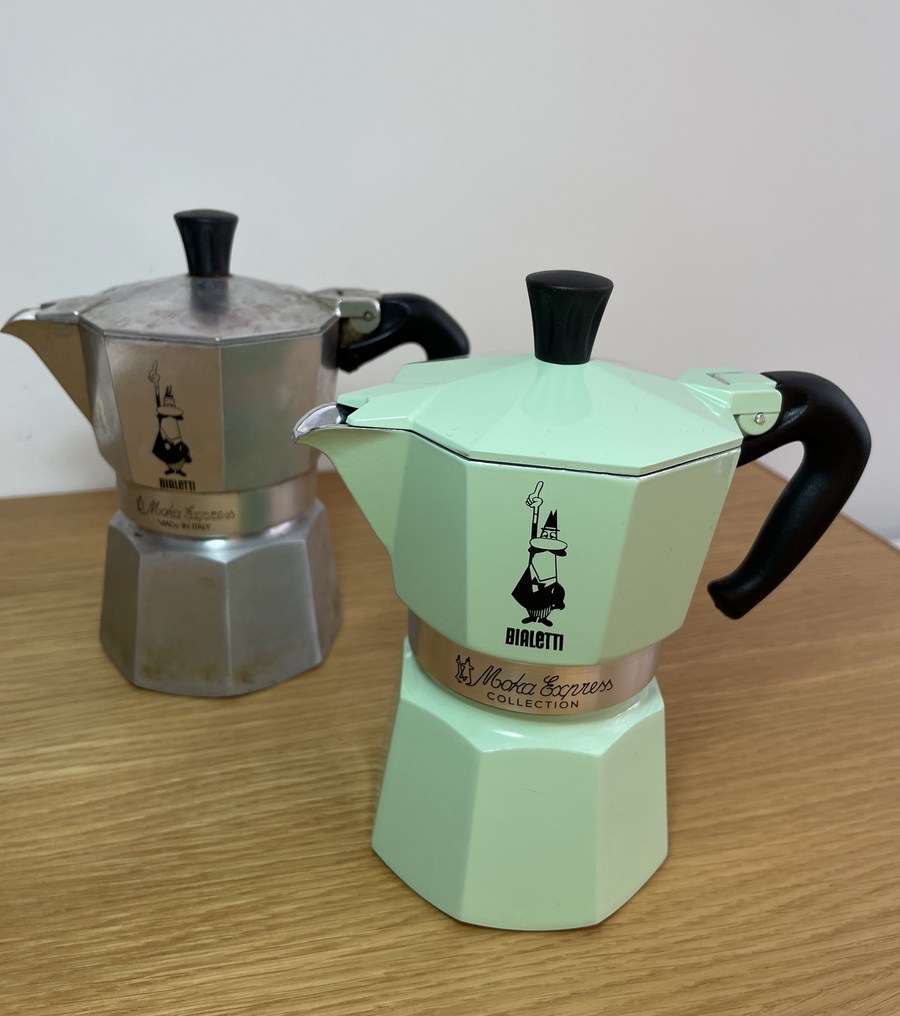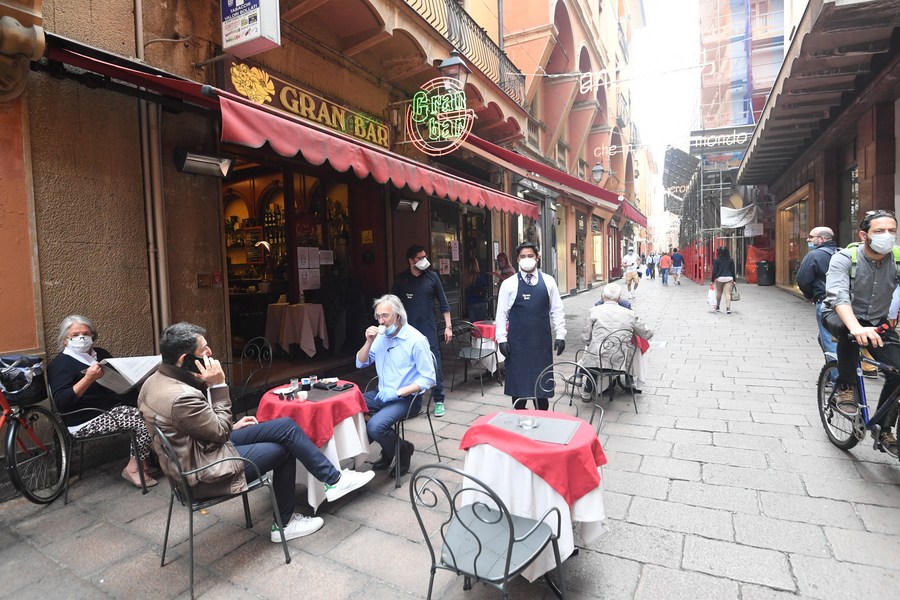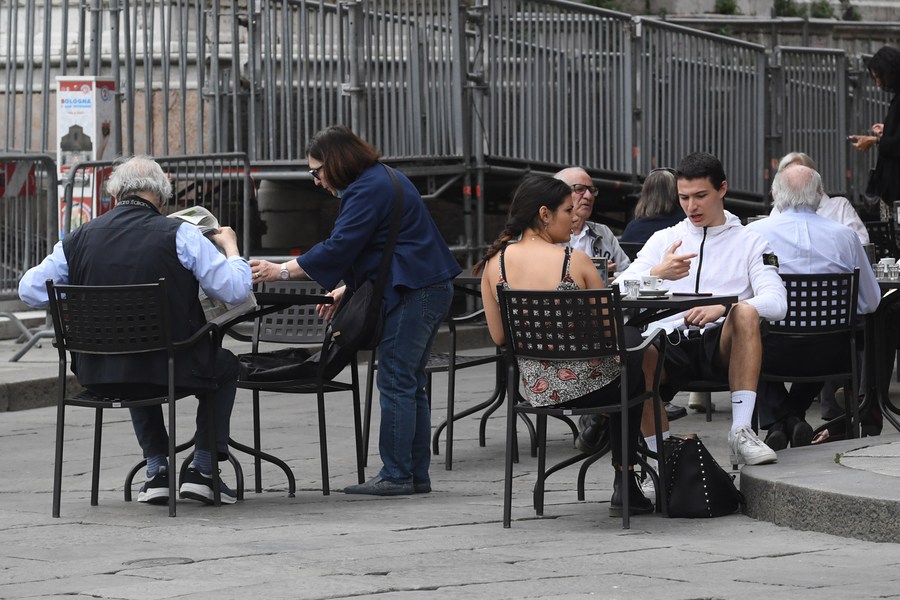
Undated file photo shows workers in the 1950s making a Moka Express coffee pot by pouring molten aluminum into a mold. (Photo provided by Bialetti/Handout via Xinhua)
Italians are among the world's biggest coffee drinkers -- statistics show that Italians consume around six kilograms of coffee beans per year -- and the drink is an integral part of the country's culture. With coronavirus lockdowns requiring coffee bars to remain shut or operate with limited hours, there was a surge in brewing coffee at home.
ROME, May 9 (Xinhua) -- Just three years ago, Bialetti, the inventor of the iconic Moka Express coffee maker, was in deep financial trouble, suffering from a changing coffee culture brought about by the growing popularity of pod coffee machines.
Now, the company is thriving. It expects to sell 30 percent more coffee makers this year than it did in 2018. Though the company is still in the red, investors evidently like its chances: the company's shares on the Italian Stock Exchange in Milan have tripled in value since the start of the year.
What happened? One factor was the pandemic. Italians are among the world's biggest coffee drinkers -- statistics show that Italians consume around six kilograms of coffee beans per year -- and the drink is an integral part of the country's culture. With coronavirus lockdowns requiring coffee bars to remain shut or operate with limited hours, there was a surge in brewing coffee at home. In a country where an estimated three in four households own a Moka Express, this was good news for the company.
"Many Italians already owned a Moka coffee maker and during the pandemic, a new generation started using it," Fabio Guggeri, who operates a small social media site dedicated to the Moka Express, told Xinhua.

Photo taken on April 25, 2021 shows a new sage green-colored Moka Express coffee pot in front of a traditional metal-colored version at least 20 years old in Rome, Italy. (Str/Xinhua)
According to Elisa Albanese, Bialetti's director of marketing, the company's turnaround began even before the pandemic, when it switched from being a brand focusing on kitchen supplies to one focusing on all aspects of what Albanese called the "world of coffee."
This "world" entails versions of the Moka Express coffee maker, as well as coffee grinders, cups and saucers, designer mugs and even Bialetti's own Perfetto Moka brand of ground coffee made specifically for the Moka pot. More items are in development, Albanese said.
"In addition to the nostalgia of the Moka coffee pots, people are also attracted to their sustainability," Albanese told Xinhua. "Unlike the coffee capsule machines that create waste that is difficult to recycle, the Moka pots make a great cup of coffee without any non-organic waste. They don't even use a coffee filter."
The broad strategy appears to be working. Albanese said the total number of Moka pots sold went from 3.5 million a year between 2015 and 2017 to four million in 2020. The goal is five million pots sold this year.

People have coffee at a coffee shop in Bologna, Italy, May 18, 2020. (Photo by Gianni Schicchi/Xinhua)
It all adds up to a dramatic turnaround for a company that was more than 70 million euros (85 million U.S. dollars) in debt and at risk of disappearing only three years ago.
In 2018, when news surfaced that Bialetti was in trouble, it was a top story on most of Italy's news outlets. All the stories at the time lamented the possible end of the line for a beloved Italian icon that during Italy's post-war economic boom was one of the first luxury items members of the country's fast-growing middle class allowed themselves to acquire.
That nostalgia is still part of the niche the Moka Express holds in Italian culture, according to Giorgio Caballini, owner of Dersut Caffe, a leading Italian coffee producer. Caballini is one of the main figures pushing for Neapolitan espresso coffee -- the type made in the famed coffee bars in the southern Italian port city of Naples -- to earn UNESCO (United Nations Educational, Scientific and Cultural Organization) recognition. But Caballini said the Moka Express pot still has a place in his heart.
"I love Neapolitan espresso, but I have to admit that my first coffee of the day is from a Moka pot," Caballini told Xinhua. "When that wonderful aroma fills the kitchen, that's how I know the day has started."

People have coffee at a coffee shop in Bologna, Italy, May 18, 2020. (Photo by Gianni Schicchi/Xinhua)■




